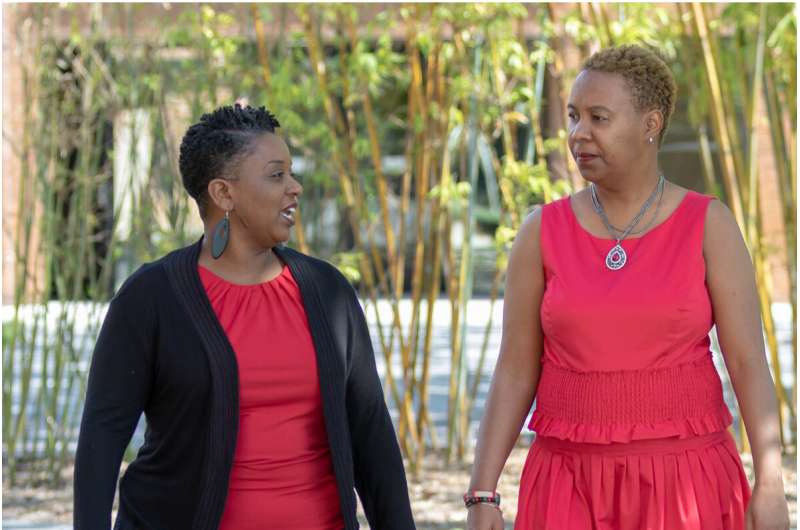African-American moms are helicopter parents too, but endgame is survival

African-American moms share many traits with helicopter parents, specifically when it comes to being overprotective and hypervigilant about their children's lives. But their goal is not only to get them into college. It's survival.
That's the conclusion of a study recently published in The Professional Counselor, which documents the experience of African-American mothers raising boys and young men in the United States.
The qualitative study found that mothers live in fear that their sons will be stopped by people in authority and could potentially be killed, the same experience responsible for the #BlackLivesMatter movement. This anxiety leads to physical symptoms and also impacts the way these women parent their sons.
"We've been hearing from mothers about these fears throughout our professional careers," says Ann Shillingford '09, a UCF associate professor of counseling and one of the study's lead authors. "We decided to look at the data and we heard similar stories over and over again. This is a collective experience that had not been documented, until now."
Shillingford and UCF colleague Richelle Joe wanted to understand how media exposure to community and state violence connect to the physical and mental health of these mothers. They hoped the information would educate counseling techniques that would help African-American families.
Some of the study participants described themselves as having to be "crazy and brave" to raise their sons given all the challenges they face. They described coaching their sons on how to act when they are stopped—not if it happens—to enhance their chances of survival. This coaching is often referred to as "the talk."
"They have a baseline of fear for their sons, which causes them to be a bit overbearing. They reported wanting to control their sons' movements and they give them 'the talk' in hopes that it will protect them outside the home," Joe says. "This is a kind of helicopter parenting, but not for academic success. It is to ensure survival."
Not everyone has the same approach, the authors said. But the mothers in the study described "the talk" as offering this advice:
- Keep your hands where they can see them.
- Don't make sudden movements.
- Don't give them a reason to hurt you.
- Be polite, even if you are angry for the unjust nature of the situation.
- I know you did nothing wrong, but don't give them a reason.
The "talk" usually concludes with, "I want you to come home alive."
The children's reaction varies and leads to strains on the relationship, adding to the stress the mothers juggle.
Raising young African-American men is also isolating, the authors say. The moms don't feel comfortable talking about this at work or with other people who aren't going through the same experience.
"They are dismissed at work and often told their 'good boys' are going to be ok, or they are told they are overreacting," Shillingford says.
So, the women seek others like them and create their own support networks to share and to reassure each other they are not alone, Joe says.
The study authors interviewed 19 women from across the nation with at least one male child of varying ages. Most of the mothers held college degrees, and all of them had attended college for some amount of time. The interviews lasted between and 40 to 90 minutes depending on the participant. Those interviewed often shared stories of other women in their network.
"We have a duty to provide culturally sensitive services to support this population so that they can take off their masks and experience the empathy that is lacking in many aspects of their lives," Joe says. "Additionally, this duty extends beyond the counseling room as counselors serve as social justice advocates in order to address the systemic barriers to mental health and wellness for members of the African-American community."
The authors say they will continue to document the experience of African-American mothers and hope to next examine what coping techniques they use and their effectiveness.
More information: J. Richelle Joe et al, The Experiences of African American Mothers Raising Sons in the Context of #BlackLivesMatter, The Professional Counselor (2019). DOI: 10.15241/jrj.9.1.67



















